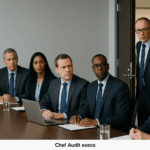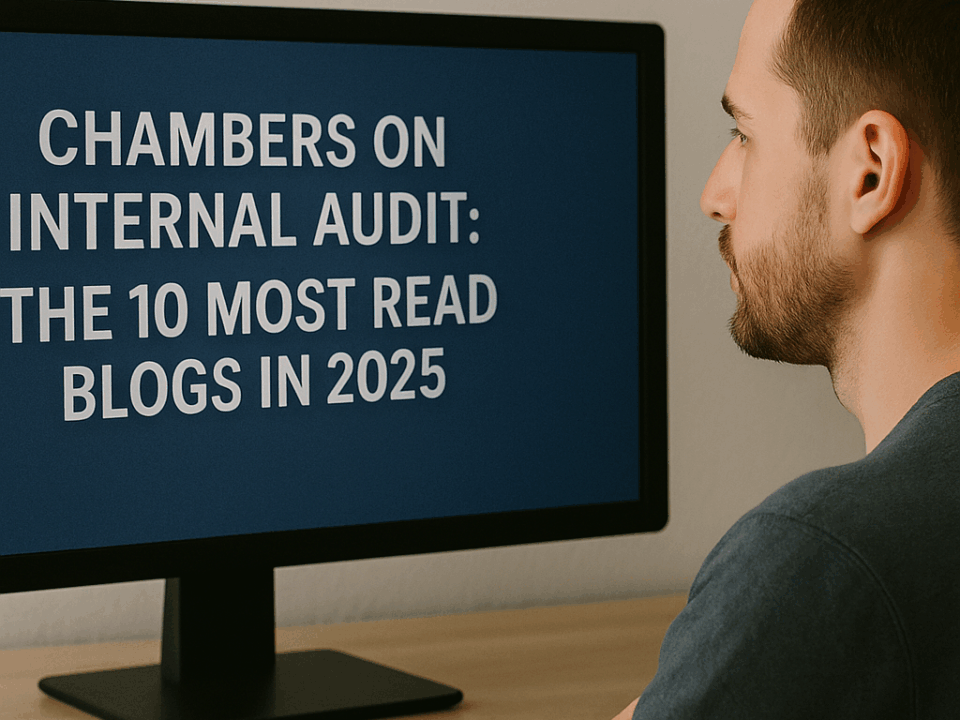
5 Potential Risks in the Coming Year That No One Is Talking About
July 16, 2025
Management Should Never “Crash” Internal Audit’s Executive Session with the Audit Committee
July 23, 2025In October 2020, I shared the sad news with the global internal audit profession that four public sector internal auditors in Liberia had died mysteriously in just over a week’s time. Liberian press accounts at the time described troubling circumstances and hinted at possible retaliation against these courageous public servants. As President and CEO of The IIA in 2020, I also wrote to the U.S. Secretary of State urging the United States’ full support in response to a call for assistance from the Liberian government in uncovering the truth behind those tragic deaths.
At the time, I noted:
“We may never know whether Emmanuel Barten Nyeswua was questioning the integrity of powerful politicians, whether Albert Peters was demanding accountability for public waste, whether Gifty Lama was seeking transparency in shady government dealings or, whether George F. Fanbutu was working to expose inequity. Still, we owe each of them not only a debt of gratitude, but also our most ardent determination to uncover the truth as to why their important calling as guardians of trust ended violently and much too soon.”
Almost 5 years after the Liberian deaths, the cases remain unsolved.
Sadly, tragedy has struck again. Mpho Mafole, head of corporate and forensic audit for the municipality of Ekurhuleni, South Africa, was found dead in his car in late June, the victim of a shooting that many believe was far from random.
Despite the fact that the death of Mafole remains unsolved, there are no shortages of theories, and outrage abounds. On July 11, South African author and crusader, Themba Dlamini, published a blistering Op-ed: “Let’s Honor the Memory of Mpho Mafole by Protecting our Whistleblowers.” The opinion piece addressed the need for greater protections for whistleblowers and others in oversight roles, but Dlamini shared a passionate view regarding Mafole’s death by observing:
“The recent killing of forensic auditor Mpho Mafole in Ekurhuleni brought this home in the most painful way. His death wasn’t metaphorical. It was brutal. Deliberate. A man who traced numbers was traced — and hunted down.“
Dlamini is not the only one in South Africa raising serious questions about the death of Mafole. The mayor of Ekurhuleni, Nkosindiphile Xhakaza, believes Mafole’ s death is linked to his investigation into the disappearance of 2 billion ZAR ($113M USD). According to news reports, “despite having only worked in the city for just three months, Mpho Mafole and his team were probing a massive electricity billing scandal that cost the City of Ekurhuleni more than R2 billion.”
The African National Congress (ANC), South Africa’s ruling party, has also expressed alarm. It has called for a full investigation into Mafole’s death and other attacks on municipal officials.
Outrage over Mafole’s death has also been registered by numerous political leaders and organizations from across the country including The South African Federation of Trade Unions who referred to his death as “a targeted execution of a public servant.”
The South African Chapter of the Association of Certified Fraud Examiners (ACFE) hasn’t minced words either. In a July 3 press release, The ACFE was unequivocal:
“The brutal assassination of Mpho Mafole is not only a profound tragedy but a stark and urgent reminder of the grave dangers posed by entrenched corruption and criminal impunity in our society.
Mpho’s murder is a direct attack on the values of integrity, accountability, and justice. It embodies the escalating consequences faced by those who dare to confront fraud and corruption. This moment must serve as a catalyst, not for fear, but for decisive action.”
Mafole’s death has come just weeks before IIA South Africa is slated to release findings from a 2025 survey on the Plight of the Internal Auditor. In a recent interview, IIA SA CEO, Arlene-Lynn Volmink, observed:
“The threats and attacks on accountability professionals pose a serious danger to the individuals who uphold the integrity of our institutions. If physical and psychological safety become barriers to entry, the future of the internal audit profession in South Africa is at risk.”
I have always referred to public sector internal auditors as guardians of public trust. When these guardians are gunned down without justice, public confidence erodes—and a chilling message is sent to those who remain: you could be next.
But silence is not an option. We must speak out. We must demand investigations, transparency, and protection for those who risk everything to expose corruption.
Dlamini’s final words deserve to echo beyond South Africa:
“Your work is not in vain. It may be dangerous. It may be thankless. But it is holy ground… If we want to honor Mpho Mafole, let’s start by shielding whistleblowers the way we shield ministers. Let’s build independent reporting lines.
To the audit professionals, financial controllers, and PFMA/MFMA watchdogs: Your work is not in vain. It may be dangerous. It may be thankless. But it is holy ground. You are not just counting rands — you are defending the soul of a nation. Healing begins with honesty. Reform begins with repentance. And revival begins when we stop protecting the corrupt — and start protecting the courageous. If we want to honour Mpho Mafole, let’s start by shielding whistleblowers the way we shield ministers. Let’s build independent reporting lines.”
As always, I welcome your thoughts.






I welcome your comments via LinkedIn or Twitter (@rfchambers).